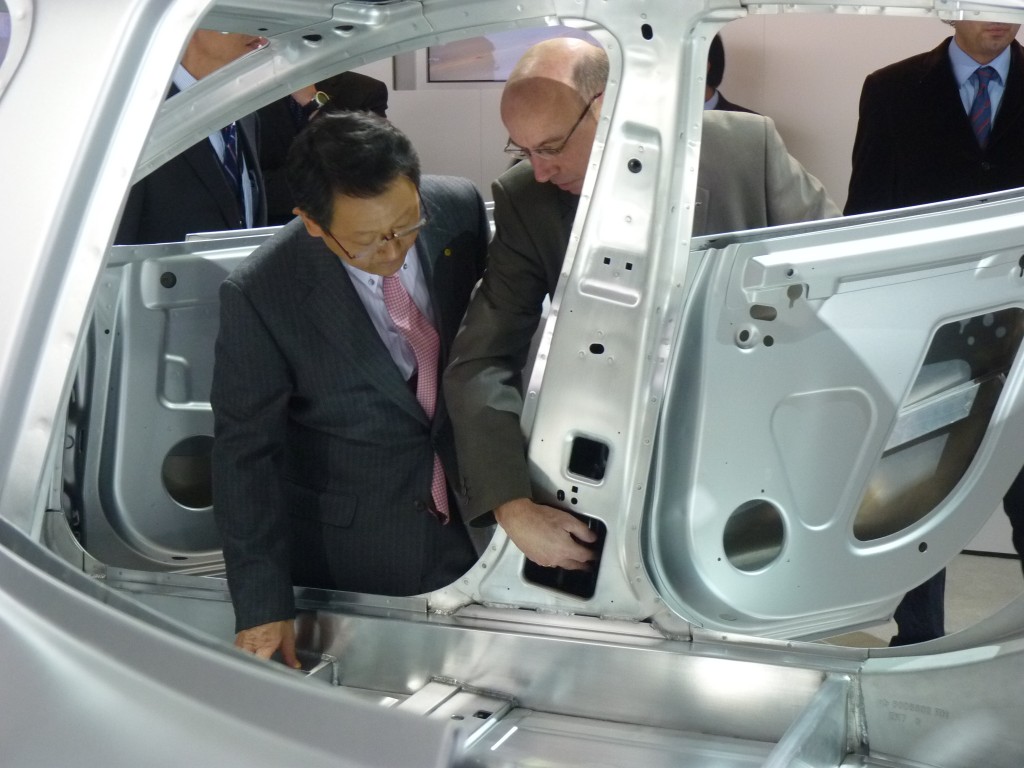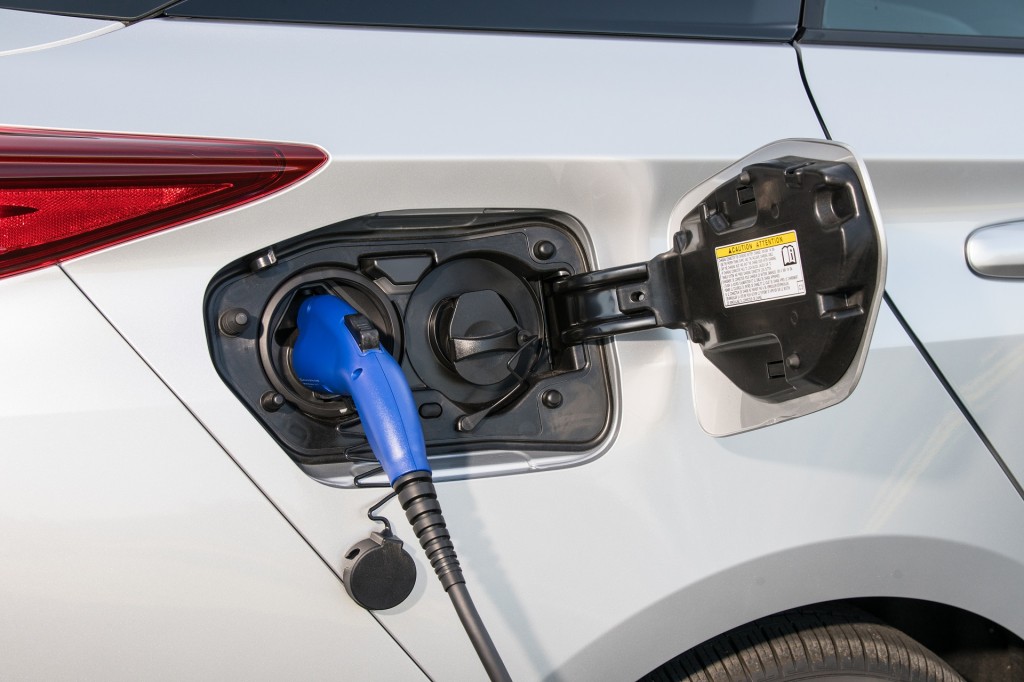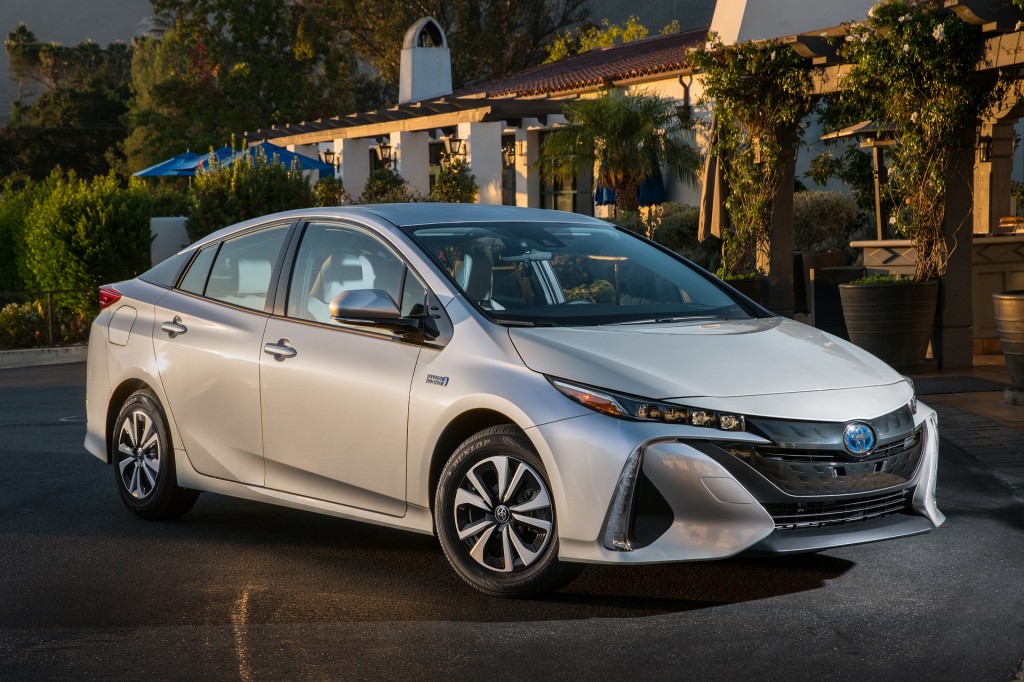It's now abundantly clear that Toyota is changing course when it comes to zero-emission vehicles.
After years of promoting hydrogen fuel cells while shunning and disparaging battery-electric cars, the company now plans to introduce a mass-market electric car by 2020.
The fact that Toyota is reportedly only now assembling the team to develop that car indicates how recent this decision seems to be.
DON'T MISS: Toyota to offer electric car in 2020 as fuel-cell sales struggle
But the company's choice of leader for the team indicates the company is taking electric cars very, very seriously indeed.
Toyota has appointed CEO Akio Toyoda to lead its electric-car division personally, according to a Reuters report.
The company hopes putting Toyoda—the grandson of company founder Kiichiro Toyoda—in charge will speed the development, a spokesperson told the news service.

Toyota Motor Corporation president Akio Toyoda, at Tesla stand, 2011 Detroit Auto Show
Toyoda has run the company since 2009, and was the main force behind the 2010 deal that saw Toyota sell its New United Motor Manufacturing Inc (NUMMI) plant in Fremont, California, to Tesla Motors.
Toyota also invested in Tesla, and the smaller automaker supplied powertrain components for the limited-production Toyota RAV4 EV electric crossover utility vehicle.
The RAV4 EV was a "compliance car" built solely to satisfy California's zero-emission vehicle mandate, and was only available in the Golden State during its brief production run.
ALSO SEE: Questions answered: Live-blogging the Tesla-Toyota press conference (May 2010)
Tesla CEO Elon Musk even gave Toyoda a Tesla Roadster sports car that year as a thank-you gift—but the two companies appear to have parted ways since then.
The announcement of Toyoda's personal involvement in the electric-car project follows multiple statements suggesting Toyota believes it has made significant strides in lithium-ion battery technology, sufficient to support future electric cars.
In a presentation to Tokyo media last month, Toyota battery researcher Hisao Yamashige called lithium-ion cells a "key technology," and said Toyota would have the capability to develop longer-range battery packs "in a few years."
2017 Toyota Prius Prime Premium
Prior to that, Koji Toyoshima, the chief engineer for the latest Prius—and its Prius Prime plug-in hybrid version—said continued work on lithium-ion cells for hybrids and plug-in hybrids could eventually be applied to electric cars.
Back in June, he also hinted that the Prius Prime plug-in hybrid could possibly form the basis for future battery-electric Toyota models.
MORE: Toyota battery R&D will allow all-electric car in 'a few years,' likely 2020
That car's 8.8-kilowatt-hour battery pack gives it a rated electric range of 25 miles, and the second-highest energy efficiency rating (133 MPGe) of any car sold in the U.S. this year.
Unusually for a plug-in hybrid, it defaults to run run solely on battery power without letting the engine start up at all while there is still battery capacity left.

2017 Toyota Prius Prime Premium
That differs from most other plug-in hybrids, but is similar to the behavior of the Chevrolet Volt (rated 53 miles of electric range), and gives the Prius Prime the feel of an all-electric car for those first 25 or so miles.
Reports so far indicate that Toyota's all-electric car may be a dedicated model, possibly a small SUV.
It is expected to debut in 2020, in time for the Tokyo Olympics, which have long been expected to provide a stage for Olympics sponsor Toyota to show off its latest green vehicles.
_______________________________________________












